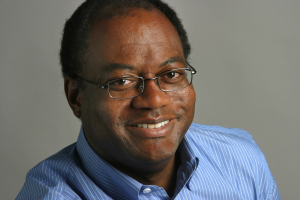Media
The University of Hong Kong appoints Professor Keith Richburg as new Director of the JMSC
30 Mar 2016
Professor Keith B. Richburg, whose journalism career has spanned 40 years and four continents and who has lectured at some of the world’s most prestigious universities, has been named the new Director of the University of Hong Kong’s Journalism and Media Studies Centre (JMSC), the university announced today (March 30).
As of September 1, he will succeed Professor Chan Yuen-Ying, a noted educator, China expert and veteran journalist. Professor Chan founded the JMSC in 1999 and has since built it into one of Asia’s premier journalism schools.
Professor Paul Tam, university Provost and Deputy Vice-Chancellor, announced the appointment: “Given his extensive international experience and exposure, Professor Richburg will certainly bring new perspectives and useful experience to his new role,” he said. “We have high hopes that Professor Richburg will take the JMSC to new heights.”
Professor Tam also congratulated Professor Chan on her years at the JMSC. He said: “My warm appreciation also goes to Professor Ying Chan for her huge contribution to the JMSC during her past 16 years of meritorious service as the Director of the JMSC.”
The JMSC offers undergraduate and graduate degrees at HKU, as well as professional training in journalism, and its graduates are currently working at many of the world’s major online, print, broadcast and cable news organisations. To keep up with the rapid changes in the media industry, the centre has expanded its convergent media curriculum to include courses and research in data journalism, social media, and media entrepreneurship. The JMSC has also forged extensive ties with the media industry as well as educational organisations around the world.
Professor Richburg spent 33 years as a reporter and editor at The Washington Post, including 20 years as a foreign correspondent, most of that in Asia. He was Manila bureau chief from 1986 to 1990, covering Southeast Asia and Hong Kong. He returned to Hong Kong in 1995, covering Hong Kong and Indonesia until 2000, and during this time also served as president of the Hong Kong Foreign Correspondents’ Club. His final tour in Asia was as the Post’s China correspondent, based in Shanghai and Beijing, from 2009 to 2013.
He covered coup attempts in the Philippines, the Vietnamese withdrawal from Cambodia, the fall of the Suharto regime in Indonesia, the Asian financial crisis and the Hong Kong handover in 1997, among many other events.
He also served as Africa bureau chief, where his subjects included the Somalia famine, the Rwanda genocide and South Africa’s transition from apartheid to majority rule. While nominally based in Paris, he spent much time in the Middle East and Afghanistan, including coverage of the U.S.-led invasion of Afghanistan in 2001 and the start of the Iraq War in 2003. From 2005 to 2007, he was the Post’s foreign editor.
He has won several awards for his foreign coverage, and was twice a finalist for the Pulitzer Prize for his reports from Somalia.
He actually considered a career in academia upon graduating from the University of Michigan in 1980. He chose journalism instead, but now that he is coming to HKU, he said: “I see this as coming full circle.”
Since retiring from the Post in 2013, he has taught international reporting at Princeton University, and was a fellow at the Institute of Politics at Harvard University, where he gave lectures and talks and led seminars. He has also served as Editor-at-Large and a visiting professor at the JMSC. In addition to his Bachelor of Arts degree in political science, he holds a Master of Science degree in international relations and comparative government from The London School of Economics.
Professor Richburg, who will be 58 in May, was chosen to succeed Professor Chan after an international search. He said he plans to use his wide circle of contacts to build on the solid foundation that Professor Chan has laid in coverage of China, in instructing students in the new demands of digital-era journalism, and in forging collaborative efforts with leading media and educational organisations around the world.
“I want the JMSC to be the place in the region where people come to find out what’s going on in these areas,” he said. “I want us to be the think tank for all these issues.”
For more information, please contact:
James Hill
(+852) 3917 1669
jhill@hku.hk

